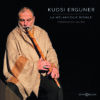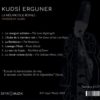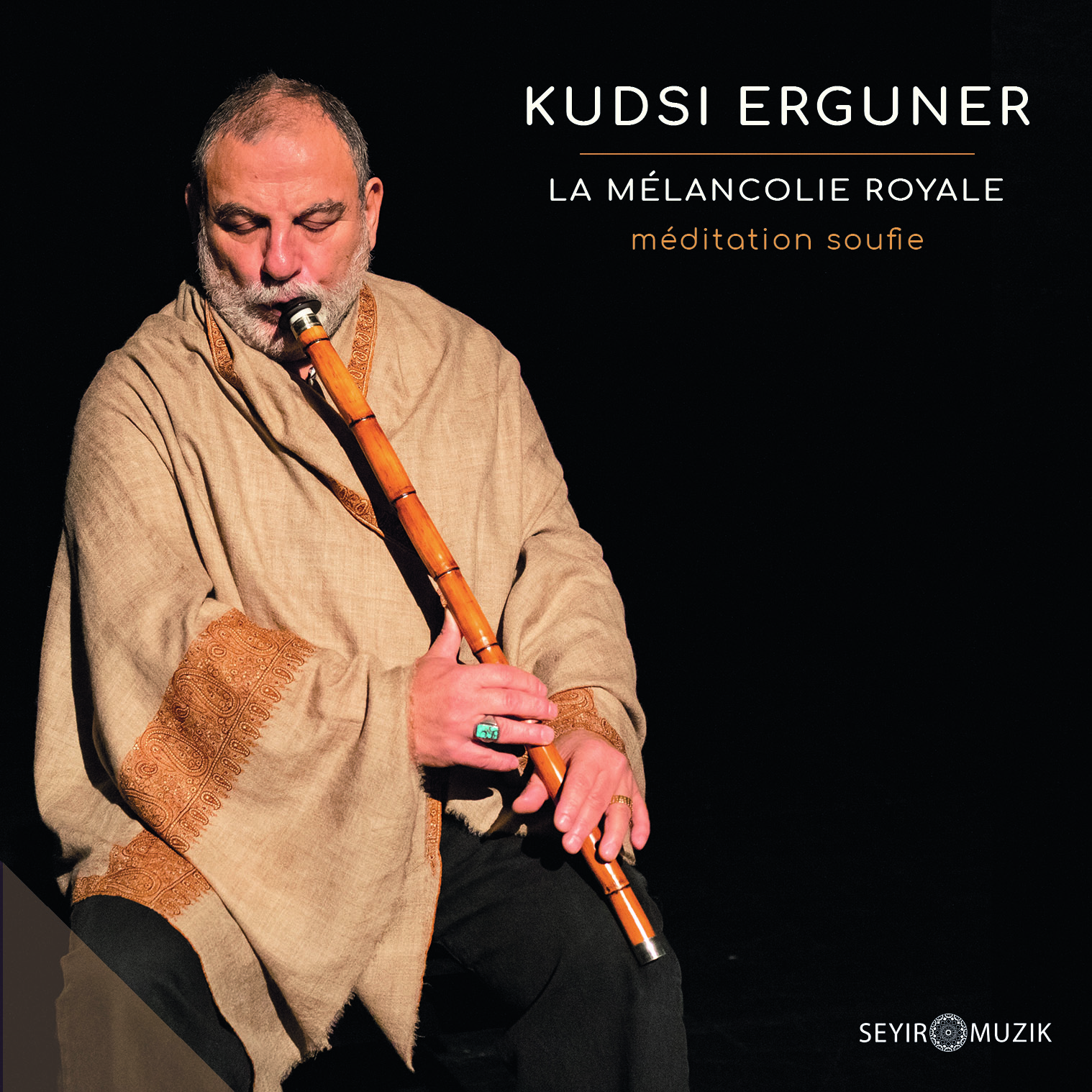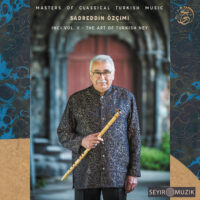21,00€
KUDSI ERGUNER
LA MELANCOLIE ROYALE – MEDITATIONS SOUFIES
Release date: 24.05.2019
Catalogue number: 2GN009
FORMAT: CD / DIGITAL
FEATURED ARTISTS: Kudsi Erguner: ney
TRACKLIST:
01 Le rossignol solitaire – The Lone Nightingale (9:47)
02 L’Aube de la dernière nuit – The Dawn of the Last Night (7:52)
03 La Révélation – The Revelation (12:01)
04 Louange (Naat) – Praise (Naat) (6:55)
05 Le vent de l’aube – The Wind of Dawn (15:04)
06 Le miroir céleste (Ulvî) – The celestial mirror (Ulvî) (10:27)
Total running time: 61:27
Description
Ney means ‘reed’ in Persian and is the name often given to all types of flute made from this material. The Royal Melancholy meditations showcase the most commonly used and popular ney in the Arab, Persian and Turkish worlds where it is always played in their own distinctive aesthetic.
The origins of the ney have been lost in the mists of time. Some Ancient Egyptian tombs depict flutes very similar to the ones seen today in terms of both shape and playing position. The simplicity of this instrument appears to point to its antiquity, so obvious is the idea of cutting a reed to make a flute.
Though basic, the ney has adapted to the musical cultures of various countries. In Ottoman culture, it is seen as art music’s main instrument: it is also held dear among Mevlevi disciples, the Whirling Dervishes, who have endowed it with a sacred aura since the writings of Mevlânâ Jalāl ad-Dīn Rūmī, the great 13th-century Sufi master to whom they refer.
One day, Rumi removed a roll of paper from his turban, which contained the first 18 couplets of Masnavi and then dictated 24,000 others to his disciple Hüsamettin Çelebi in order to comment thereon. The first couplet in this work, which became the fundamental basis of Rumi’s teachings, opens with these words:
Listen to this reed how it complains
It is telling a tale of separation
Press
“It’s hard to imagine a purer form of the tradition than this with Erguner playing six solo meditations on the ney. The reed flute has strong mystical associations because of the way it features in the poetry of the 13th century mystic poet Rumi and is prominently used in Mevlevi Sufi music. Erguner uses only one instrument (a Kiz ney in A), but five different maqams. It’s lovely to hear the notes that deviate from a Western scale, although the mood is consistently tranquil and calming. This is music for meditation after all and the tracks last from seven to 15 minutes. For Erguner, it’s also a lament for the way great art music from different civilisations is transformed into ‘ethnic, popular and folkloric’ styles to make them more appealing. For him, the unhealthy fascination with the West continues and his response is meditative Sufi music from the heart of the tradition.” Songlines (Simon Broughton)
“A la fois légère, aérienne et chatoyante, la flûte de l’artiste vous berce avec délicatesse vous emportant très certainement vers des contrées lointaines et orientales sans oublier, un timbre qui pourrait paraître pour certains légèrement nostalgique.” Music in Belgium
“Dazzling, wide-span and therefore extremely relaxed Sufi meditations.” Heaven (Cees Bronsveld)
“Ancient music that turns out to be completely timeless, especially if it is performed as virtuoso as it is here.” Moorsmagazine
“In light of Erguner’s cultural preservation work, which confronts the trivial and ephemeral, a real accomplishment. This is ney music with a mission.” Qantara (Marian Brehmer)
“In the Orient, the sound of the reed flute Ney is associated with the breath of God. Their soft, airy tone and their plaintive melodies awaken melancholy and, for example, put Sufi dervishes in a state of spiritual immersion. The Turkish virtuoso Kudsi Ergüner comes from a family that has been playing the Ney for many generations. His album »La mélancolie royale« enchants with intimate sounds: delicate lines, the finest nuances in the tone, tiny embellishments, and microtonal subtleties. In addition, a calm breath, long melody arcs, and pauses in which time stands still.” Schallplatten Kritik, Quarterly Critic’s Choice (Tom Daun)








